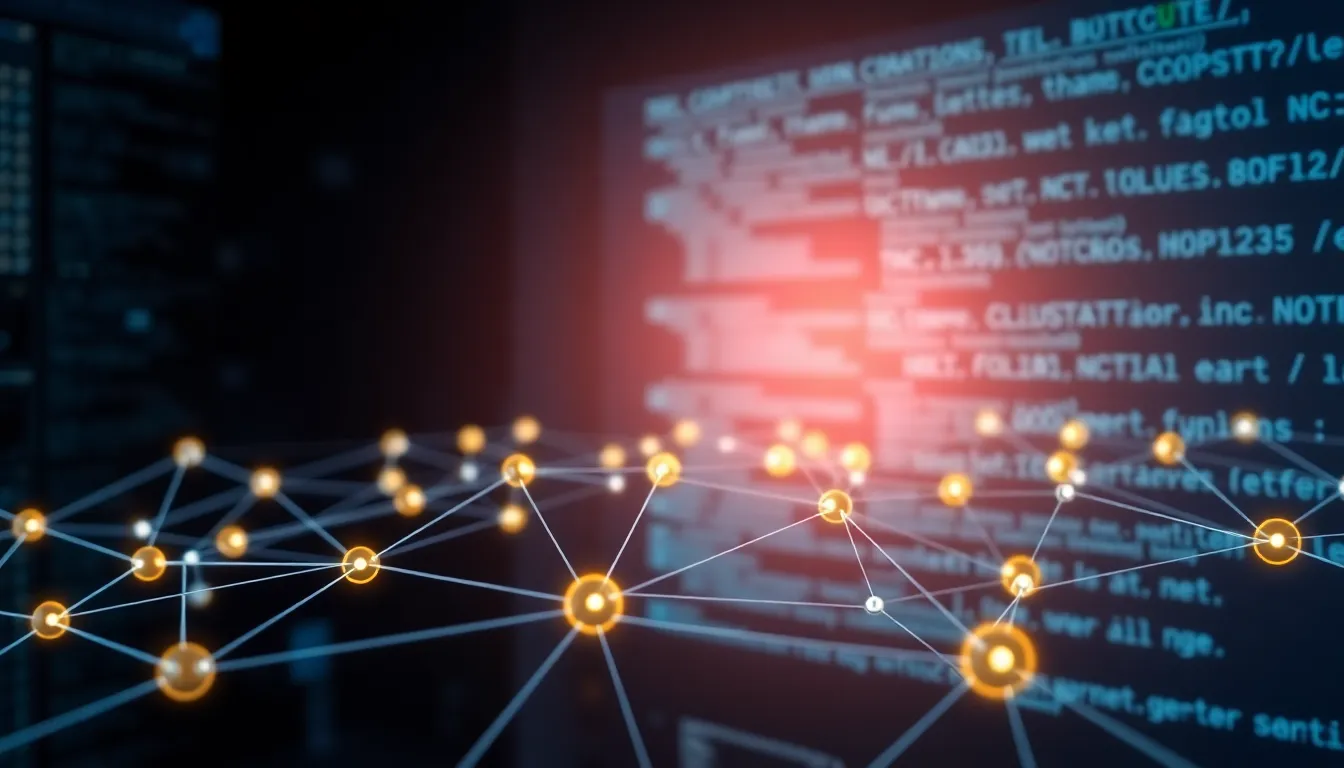In a world where everything seems to be going digital, smart contracts are the new kids on the blockchain. Imagine a legal agreement that executes itself without the need for a middleman—no lawyers, no lengthy negotiations, just pure code doing all the heavy lifting. It sounds like something out of a sci-fi movie, but it’s very much a reality, and it’s shaking up the legal landscape like a caffeinated lawyer at a coffee convention.
Table of Contents
ToggleOverview of Smart Contracts Law
Smart contracts represent a pivotal evolution in the legal framework associated with blockchain technology. These contracts automatically execute terms based on predefined conditions, reducing the role of intermediaries in transactions. Legal systems worldwide face the challenge of integrating smart contracts into existing law, addressing aspects like enforceability, liability, and dispute resolution.
Their self-executing nature poses unique legal questions. Jurisdictions assess how traditional contract law applies to smart contracts, focusing on issues like consent, capacity, and intention. Courts increasingly encounter cases involving disputes stemming from smart contracts, leading to a need for tailored legal interpretations.
Lawmakers are exploring regulations that oversee the use of smart contracts. Various jurisdictions, particularly in the U.S. and Europe, are developing frameworks to provide clarity and security for users. This ensures that legal protections align with technological advancements.
Parties using smart contracts benefit from increased efficiency and cost reduction. Transactions settle faster, with blockchain providing transparency and traceability. However, participants must remain vigilant regarding the inherent risks associated with coding errors and potential vulnerabilities.
The intersection of technology and law will likely continue evolving. Ongoing discussions within legal communities emphasize the need for comprehensive guidelines. Experts suggest that collaboration between technologists and legal professionals is essential for developing a robust legal landscape for smart contracts.
Key Features of Smart Contracts

Smart contracts encompass unique attributes that distinguish them from traditional agreements. These self-executing contracts rely on code to enforce terms automatically, thereby enhancing efficiency.
Definition and Characteristics
Smart contracts serve as computer programs stored on a blockchain. They execute specific actions when predetermined conditions are met. Features include transparency, since all participants have access to the code and transaction history. Security follows from the cryptographic nature of blockchain technology, reducing risks of tampering. Additionally, they operate on a decentralized platform, eliminating reliance on intermediaries, which fosters trust among users. This coding ensures the reliability and immutability of the agreements once deployed.
Advantages and Disadvantages
Advantages of smart contracts include cost efficiency and speed. Transactions occur faster without intermediaries, leading to quicker settlements. Increased accuracy stems from automation, reducing human errors. Additionally, they promote trust through transparency and traceability. On the downside, vulnerabilities exist. Coding errors may introduce risks, potentially leading to financial losses. Legal uncertainty arises since regulations are still evolving, creating challenges for enforceability. Furthermore, the lack of oversight in smart contract execution can cause disputes, highlighting the need for a solid legal framework.
Legal Framework Governing Smart Contracts
Smart contracts operate within a legal framework that is still evolving. Understanding this framework is crucial for their effective implementation and acceptance.
National Regulations
In the United States, some states have begun to enact laws specifically targeting smart contracts. Arizona and Nevada, for instance, recognize smart contracts as legally enforceable, aligning them with traditional contract principles. This recognition fosters a more conducive environment for innovation. Various states are exploring regulatory models to clarify legal statuses, particularly concerning enforceability and dispute resolution. The U.S. Securities and Exchange Commission also evaluates how existing securities law applies to transactions involving smart contracts. Clear national regulations remain essential for addressing liability, privacy, and compliance issues while promoting technological advancement.
International Perspectives
Globally, countries are gradually establishing regulatory approaches to smart contracts. The European Union’s General Data Protection Regulation notably impacts these contracts, emphasizing data protection and user privacy. Jurisdictions such as Switzerland and Singapore actively promote blockchain technologies, creating legal frameworks that facilitate smart contract deployment. Internationally harmonized regulations can enhance cross-border transactions and establish trust. Countries that prioritize robust legal frameworks may attract more blockchain investments. As smart contracts gain prominence, international collaboration will be crucial for creating consistency and clarity in their regulation.
Enforcement of Smart Contracts
Enforcement of smart contracts poses unique challenges within legal systems.
Jurisdictional Challenges
Jurisdictional challenges arise when smart contracts operate across multiple regions. Courts in different jurisdictions often interpret laws differently. Variations in legal frameworks can complicate the enforcement of these agreements. For instance, a smart contract executed in one country might conflict with regulations in another. The lack of harmonization among laws creates uncertainty for businesses using smart contracts. Regulatory bodies in various countries are working to address these issues by creating clearer guidelines. Understanding the jurisdiction in which a contract operates becomes essential for both parties involved.
Dispute Resolution Mechanisms
Dispute resolution mechanisms specifically for smart contracts are still developing. Traditional methods, such as litigation and arbitration, may not efficiently resolve blockchain-related disputes. Options like decentralized arbitration are emerging as alternatives for quicker resolutions. These methods offer processes to reach agreements without lengthy court proceedings. Furthermore, integrating automated resolution protocols within the contract can minimize conflict. Parties are encouraged to consider how disputes will be handled while drafting smart contracts. Clear mechanisms foster trust and can enhance the overall efficiency of transactions.
Future Trends in Smart Contracts Law
In the realm of smart contracts law, several trends are emerging that shape the future landscape. Regulatory frameworks continue to evolve, with jurisdictions worldwide developing policies to govern smart contracts effectively. Countries like the U.S. and members of the European Union are actively working to implement clear guidelines that align with technological advancements.
Technological integration will play a vital role in how smart contracts are adopted within legal frameworks. Blockchain technology’s capabilities continue to improve, offering enhanced features that support smart contract functionalities. Improved security measures will address vulnerabilities, thereby increasing trust in these digital agreements’ reliability.
Law enforcement agencies are also adapting to incorporate smart contracts within their processes. Training and resources will increase among legal professionals to address the complexities of smart contracts effectively. Legal education programs are likely to emphasize this new growth area, equipping future lawyers with the necessary knowledge.
Additionally, standardized protocols for dispute resolution are gaining traction. Industry stakeholders recognize the importance of streamlined processes that address the unique challenges posed by smart contracts. Innovations such as automated dispute resolution and decentralized arbitration will likely gain popularity.
Public awareness of smart contracts and their potential impact on various industries is steadily rising. More businesses and consumers will understand how these contracts can enhance efficiency while reducing costs. As adoption increases, so does the dialogue surrounding the ethical implications and best practices for implementation.
The legal landscape for smart contracts is on the cusp of significant transformation. Collaboration among technologists, legal experts, and regulators will remain essential in fostering a robust framework that not only protects parties involved but also encourages innovation across sectors.
Smart contracts represent a significant shift in how legal agreements are formed and executed. Their ability to streamline processes and enhance transparency is reshaping the legal landscape. As lawmakers work to establish clear regulations, the integration of smart contracts into existing legal frameworks becomes increasingly essential.
Navigating the complexities of enforceability and dispute resolution will require collaboration among legal professionals, technologists, and regulators. The future of smart contracts holds promise but also demands careful consideration of potential risks and ethical implications. With ongoing advancements and growing public awareness, the legal community must remain proactive in adapting to this transformative technology.




